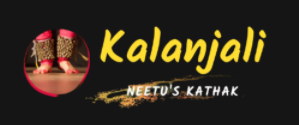We have been doing Kathak Dance Classes in Bangalore since 2008. It is one of the best noteworthy types of Indian established dance. The root of Kathak is generally credited to the voyaging minstrels of old northern India known as Kathakars or storytellers.

Overview :
We have been doing Kathak Dance Classes in Bangalore since 2008. It is one of the best noteworthy types of Indian established dance. The root of Kathak is generally credited to the voyaging minstrels of old northern India known as Kathakars or storytellers.
The term Kathak is gotten from the Vedic Sanskrit word Katha which signifies "story", and Kathaka which signifies "he who recounts a story", or "to do with stories".Wandering Kathakas conveyed stories from the immense legends and antiquated folklore through the move.
The term Kathak is gotten from the Vedic Sanskrit word Katha which signifies "story", and Kathaka which signifies "he who recounts a story", or "to do with stories".Wandering Kathakas conveyed stories from the immense legends and antiquated folklore through the move, melodies, and music in a way like early Greek theatre.
Kathak developed amid the Bhakti development, especially by consolidating the adolescence and stories of the Hindu god Krishna and in addition freely in the courts of north Indian kingdoms.
Kathak is found in three unmistakable structures, named after the urban areas where the Kathak move custom advanced – Jaipur, Banaras and Lucknow. Stylistically, the Kathak move frame stresses cadenced foot developments, decorated with little chimes (Ghungroo), and the development fit to the music.
The legs and middle are by and large straight, and the story is told through a created vocabulary in view of the signals of arms and abdominal area development, outward appearances, organize developments, twists and turns.
The primary concentration of the move turns into the eyes and the foot developments. The eyes act as a medium of correspondence of the story the artist is attempting to impart. With the eyebrows, the artist gives different facial expressions.
The distinction between the sub-conventions is the relative accentuation between acting versus footwork, with Lucknow style underscoring acting and Jaipur style extremely popular for its stupendous footwork.
Kathak as an execution craftsmanship survived and flourished as an oral custom, learnt and improved starting with one age then onto the next verbally and through practice.
It changed, adjusted and incorporated the tastes of the Mughal courts in the sixteenth and seventeenth century especially Akbar, was disparaged and declined in the pilgrim British era, at that point was renewed as India picked up freedom and looked to rediscover its antiquated roots and a feeling of national character through expressions of the human experience.
We have been doing Kathak Dance Classes in Bangalore since 2008. It is one of the best noteworthy types of Indian established dance.
The root of Kathak is generally credited to the voyaging minstrels of old northern India known as Kathakars or storytellers.
The term Kathak is gotten from the Vedic Sanskrit word Katha which signifies “story”, and Kathaka which signifies “he who recounts a story”, or “to do with stories”.Wandering Kathakas conveyed stories from the immense legends and antiquated folklore through the move.
© 2025 coursetakers.com All Rights Reserved. Terms and Conditions of use | Privacy Policy